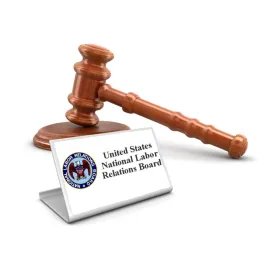The National Labor Relations Board’s Office of General Counsel is urging Regional Directors to limit their use of investigative subpoenas and instead issue complaints “based on the evidence available,” according to a March 13, 2019, memorandum obtained by Bloomberg Law.
The memo is General Counsel Peter Robb’s latest effort to reduce case processing time. It reiterates that charged parties are expected and encouraged to participate fully in a Region’s unfair labor practice investigation. While Regional Directors historically have issued investigative subpoenas to charged parties who refuse to cooperate, such subpoenas, according to the memo, can “unnecessarily prolong the investigation and impede the prompt resolution of the underlying dispute.”
Following Robb’s instructions, in cases where a charged party’s lack of cooperation is “significant,” Regional Directors are permitted and encouraged to issue unfair labor practice complaints based on the evidence available (provided the evidence supports the issuance of a complaint), rather than pursue additional evidence through an investigative subpoena. Whether a lack of cooperation is significant will be left to the Regional Director’s discretion and “dictated by the particular facts and circumstances of the case.” However, the memo notes a lack of cooperation could arise where the charged party fails to respond to a charge, or provides a written statement but refuses to “provide key information” requested by the Region. Although the memo does not clearly restrict a Regional Director’s determination of whether a failure to cooperate is significant, it notes that typically “failures to produce a witness or witnesses where credibility disputes may dictate issuance of complaint” will not rise to that level. Typically, these situations would not include failures to produce a witness or witnesses where credibility disputes may dictate issuance of complaint.
The Regional Director also has discretion to note the lack of cooperation in the complaint in this footnote language:
On (DATE(S)), the Region requested that Respondent cooperate in the administrative investigation of the ULP charge(s) conducted prior to issuance of the instant complaint. Respondent failed to fully cooperate in the investigation by refusing to furnish certain documents relevant to the disposition of the charge(s).
This latest memorandum highlights the importance of a party strategically considering the submission of a timely response to a Region’s request for information regarding an unfair labor practice charge. While responding may lower the risk that the Region will issue a complaint for failure to cooperate, it may result in providing too much information because, for example, the information request is overbroad. An employer that receives notification that an unfair labor practice charge has been filed against it should consult with counsel about appropriate next steps.






 />i
/>i

